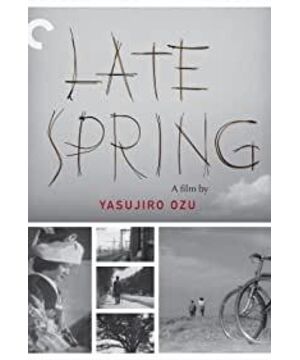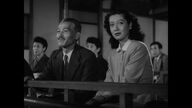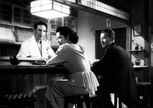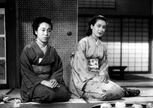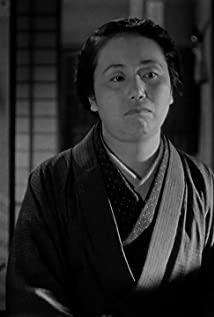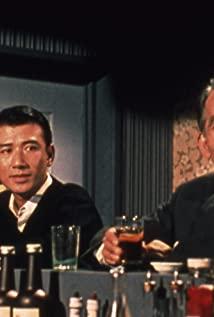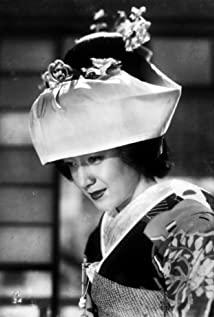Yoshida Yoshige : In "Late Spring", when the father and daughter, who are the holy protagonists, talk to each other, the infinitely ambiguous and ambiguous expressions of the two appear repeatedly on the screen. This is an Ozu-style technique. Inserting a scene into a scene to present dramatic meaning is something Ozu has always hated, believing it to be a film trick.
The reason why Ozu had to insert the image of the pot, and even violated his own rules of the game extremely seriously, is because if the expressions of the father and daughter are directly displayed on the screen, it will be transformed into sexual desire between men and women, leaving the audience to leave. Under the strong impression of incest of close relatives. In order to suppress and purify the annoying and dangerous desires that I have unknowingly triggered in the process of teasing, the kettle has become an indispensable image.
At the same time, through this pot of redemption, the daughter in the movie is also apparently redeemed. The scene of the pot that suddenly appeared caught our eye and brought us instant confusion, and in this extremely short blank time, the daughter's expression changed dramatically. Before she knew it, her daughter's face lost its smile and turned into a sad expression, as if she had been abandoned by herself.
This seemingly non-existent, extremely brief gap rescues my daughter from her tedious desires, and it also rescues us, the audience.
At this time, the meaning of the daughter's expression to us is infinitely open. It expresses the sadness of the soon-to-be-married daughter's separation from her father and the young girl's innocent desire to be embraced by her father, while also vaguely expressing a woman's sexual desire, or the daughter's anxiety about the first night of her wedding, and her A sense of gratitude to my father who has been protecting me for so long.
Hou Hsiao-hsien : All Western commentaries are about an ambiguous relationship between father and daughter, a love-father complex. I don't think so, because in Japanese family life, women do not shy away from men, and the family bathes together, which is different from ours. You can't understand if you don't know this. There is a strong regionality in a family, this piece is mine, this home is mine, she has been taking care of my father, she is in control of the home, and suddenly an outsider came, her reaction is of course like this , and then began to fall in love. If you don't understand this kind of serenity, you can't shoot it. How this method is presented in the narrative structure is the so-called drama. In the West, it can be very dramatic, and it can go all the way to the psychology of the Electra complex, but Yasujiro Ozu is Presenting a very simple appearance, all information is progressive and buried. It is very simple on the surface, and it makes you feel that there is no drama, but cumulatively, there is an undercurrent at the bottom, which is a stormy sea.
View more about Late Spring reviews


